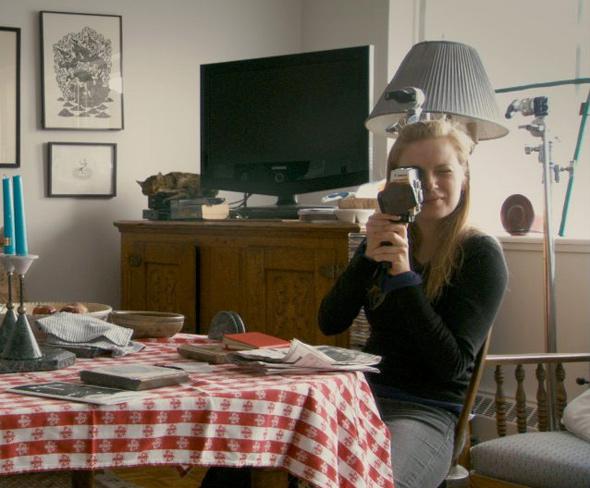Dear Dana, Mark, and Stephanie,
First let me say how profoundly grateful I am to be called off the bench to pinch hit here, just in time for the Oscar nominations! To quote perhaps the most famous Oscar speech of all time, you really like me! (I kid, because I care. And replacing Wesley Morris is an honor under any circumstances.) Dana, I agree completely with James English’s contention that having a bad attitude about awards season is just another way of fueling the machine. There’s a thin line between love and hate, as the greatest film of Martin Lawrence’s directing career so aptly observed. But I’m damned if that’s going to stop me from acting superior anyway!
I also agree it was a surprise to see Tom Hanks’ name go unmentioned this morning. But while I’m not a Hanks-hater or anything, I’m fully OK with it. Now, in a weaker year for Hollywood—maybe even an average one—he could easily have gathered both Best Actor and Best Supporting Actor nominations, the latter, of course, for playing the unflappable, feather-smoothing Walt Disney, calming down Emma Thompson’s hysterical Mrs. Travers by recalling his tromping-through-the-snow American boyhood in Saving Mr. Banks. That was a consummately Hanks-ian performance, where it looks effortless but he’s getting a lot done under the skin. (I say this as someone who found that movie entirely mendacious, although irresistible.) As for Captain Phillips—geez, I dunno, guys. I had a tough time getting inside that movie, to the point where I could be swept away by Hanks’ performance or whatever, because I couldn’t stop thinking about it as a celebratory parable of asymmetrical warfare—maybe with an element of ironic detachment, maybe not—in which it takes hundreds of well-fed Navy sailors and kazillions of dollars in taxpayer-purchased hardware to take down three starving and incompetent losers with stolen Kalashnikovs. To the extent I could get beyond that (which wasn’t far), I felt like there was an awful lot of conspicuous acting getting in the way of Hanks’ performance. It’s too obviously an award-seeking missile of a role.
I’m heartbroken about the absence of Inside Llewyn Davis, though in the context of this year’s awards season so far, that no longer feels like a surprise. Yes, I think it’s a mysterious, tragic, and beautiful work of American cinema, and probably a better film than seven or eight (or all nine) of the Best Picture nominees. It definitely lacks the Oscar-y nougat center, the conventional three-act satisfaction, the tautological “movieness” of something like American Hustle—but then, so do several movies that did get nominated, and as Dana says, so did No Country for Old Men. (In retrospect, I no longer know how to account for that one winning Best Picture. Was it Javier Bardem, with his cattle-killing gun and Ringo haircut?)
Even in a strong year for documentaries—and all five of the nominees are not just respectable but excellent—I’m crushed by the omission of Sarah Polley’s Stories We Tell, which moved me at a personal level like no other movie I saw all year. (In fact, it was No. 1 on my list.) Possibly it seemed too navel-gazing: a somewhat famous person making a film about her own family. Or maybe its more slippery epistemological elements, the way it subtly Catfishes the viewer into believing certain things we see are “real,” just pissed too many people off.
Like Dana, I’m thrilled that Lupita Nyong’o was nominated; I was actually rooting for her and Sarah Paulson, who plays a character critical to any deep understanding of what 12 Years a Slave is about, I would say. Paulson’s sadistic plantation wife is a paired opposite to Nyong’o’s battered but unbroken slave woman, and the vicious relationship between them carries both an obvious erotic charge and a more clandestine one. We know that Paulson’s husband, the deranged slave-owner played by Michael Fassbender, has taken Nyong’o’s character as his concubine—and there are hints that Paulson would like to do the same with Chiwetel Ejiofor’s Solomon Northup, were she not trapped in her own more luxurious form of servitude. Slavery exerted a Sauron-like evil upon all its participants, black and white.
In fact, I was also hoping against hope for Jeremy Renner, who plays a similarly ambiguous role, as the secret moral center of American Hustle. (I yield to no one in my love for Jennifer Lawrence, and now it looks like she’s probably going to win the second of her 17 or 18 lifetime Oscars this year, and I’m fine with that.) Speaking of American Hustle, now the industry-booster types are telling us that the Best Picture race is a three-way dead heat between that movie, Gravity, and 12 Years a Slave, whereas I think it’s all over but the Champagne-guzzling out of Jennifer Lawrence’s Louboutins. Which movie most closely fits the tautological-Oscarness standard I mentioned above? I think the answer is clear, but it might be fun to be wrong.
I’ll see you in Sundance pretty shortly, Dana—now over to you, Stephanie!
AOH
